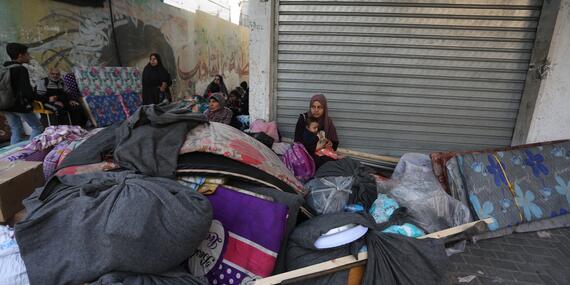Today's top news: Occupied Palestinian Territory

Occupied Palestinian Territory
Three months since the horrific attacks on 7 October, the Under-Secretary-General for Humanitarian Affairs, Martin Griffiths, said in a statement today that Gaza has become a place of death and despair.
He said that Gaza has simply become uninhabitable. The humanitarian community has been left with the impossible mission of supporting more than 2 million people, even as its own staff are being killed and displaced, as communication blackouts continue, as roads are damaged and convoys are shot at, and as commercial supplies vital to survival are almost non-existent.
Mr. Griffiths stressed that violence cannot resolve difference, but only inflame passions and build new generations of danger and insecurity.
He stressed that it is time for the parties to meet all their obligations under international law, including to protect civilians and meet their essential needs, and to release all hostages immediately.
Mr. Griffiths said it is time for the international community to use all its influence to make this happen – it is time for this war to end.
The UN and our partners continue to do all we can to meet the massive needs in Gaza.
However, the current response is only meeting a fraction of people’s needs.
We continue to be hindered by security risks, mobility constraints, delays and denials. Multiple inspections, long queues of trucks and difficulties at crossing points continue to hamper operations.
Inside Gaza, aid operations face constant bombardments, with aid workers themselves killed and some convoys having been shot at. Our humanitarian colleagues tell us that other challenges include poor communications, damaged roads and delays at checkpoints.
An effective aid operation in Gaza requires security, staff who can work in safety, logistical capacity and the resumption of commercial activity.
On the food security front, our partners continue to do all they can to support people in Gaza but are constrained by security risks and mobility constraints.
In December, the World Food Programme reached more than 975,000 vulnerable people with food aid across Gaza and the West Bank.
